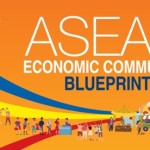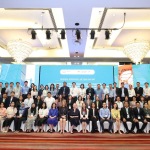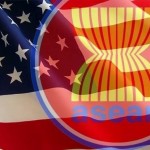Total number of posts 463.
The European Union’s (EU) Green Regulations are set to reshape global trade, and Viet Nam, as one of its trade partners, finds us at the heart of this transformation. With the Carbon Border Adjustment Mechanism (CBAM), and the EU Deforestation Regulation (EUDR) taking effect, Vietnamese businesses face both unprecedented challenges and new opportunities to upgrade their competitiveness in a fast-changing global market.
Source: VnEconomy
Stricter Standards, Higher Stakes
The EU has made climate and sustainability central to its trade policy. Under CBAM, exporters of carbon-intensive goods such as steel, aluminum, cement, and fertilizers will need to account for their carbon emissions, with taxes applied from 2026. For Viet Nam, whose manufacturing sector depends heavily on energy-intensive industries, this means exporters must adapt quickly or risk losing access to a high-value market.
Similarly, the EUDR, which targets products linked to deforestation, directly affects Viet Nam’s major export items such as coffee, rubber, and timber. While Viet Nam has been classified as “low risk” under the regulation, compliance will still require companies to provide detailed traceability and due diligence. This is a significant burden for small and medium-sized enterprises, many of which lack the technical and financial resources to meet new reporting standards.
Ngo Chung Khanh, Deputy Director General of the Multilateral Trade Policy Department at the Ministry of Industry and Trade, cautioned that while CBAM is currently applied to only six sectors, its coverage could be extended rapidly, underscoring the necessity for exporters to prepare without delay. For Vietnamese firms, this preparation will inevitably translate into higher operational costs, as companies must invest in systems to monitor carbon footprints, certify sustainable sourcing, and upgrade production processes. Smaller enterprises, particularly those in rural areas, may find it difficult to comply with such complex requirements, leaving them vulnerable to losing contracts to more adaptable competitors in other countries.
Opportunities in the Green Transition
Being classified as “low risk” under EUDR means Vietnamese coffee, rubber, and wood products enjoy simplified procedures compared to exporters from higher-risk countries. This could become a competitive advantage if properly leveraged.
Moreover, Vietnamese exporters that successfully meet CBAM requirements may gain preferential access to one of the world’s most demanding markets, strengthening their reputation globally. Sectors like renewable energy, sustainable agriculture, and eco-friendly packaging could benefit from rising EU demand for green supply chains.
Vietnam’s pioneering compliance with the EU’s green standards not only strengthens its economic cooperation with the EU, one of its key trading partners, in the context of rising risks from the United States’ new tariff policies but also reinforces its role within international cooperation frameworks such as ASEAN. In doing so, Vietnam can emerge as a regional model, helping to lead ASEAN toward effective development and implementation of sustainability regulations in the region.
Source: Compiled by the Multilateral Trade Policy Department, Ministry of Industry and Trade of Viet Nam














